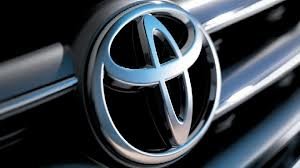Toyota Remains Most Valuable Car Brand Despite Airbag Recalls

Toyota’s brand value fell 2% to $28.9 billion, according to the study.
“When you look at the trust the Toyota brand generates from car owners, there is little dent from the airbag issues,” Peter Walshe, Global BrandZ director at Millward Brown, told Automotive News Europe. “The customer experience, the good value, and the quality that customers trust see the brand through.”
Honda was the only other top 10 brand to have its value drop besides Toyota, as it also suffered from the effects of airbag recall issues. Its brand value fell 5% to $13.3 billion.
Toyota and Honda are among automakers forced to recalls millions of vehicles, mainly in the U.S., fitted with airbag inflators supplied by Takata that can erupt with too much force, spraying shrapnel inside the car.
Toyota has been No. 1 in eight of the 10 years the study has been carried out.
Second-ranked BMW’s value increased 2% to $26.4 billion. BMW received a boost from its innovative i8 plug-in hybrid sports car and i3 battery-powered hatchback. Mercedes’s brand value rose 1% to $21.8 billion.
Audi was the fastest-rising car brand, overtaking parent Volkswagen for the No. 7 spot. Audi’s brand value increased 43% to $10.1 billion compared to 2014, according to the study.
“A lot of Audi’s success has much to do with what the brand stands for and what it means to consumers,” Walshe said. “It really stresses in a consistent way and communicates what is different and special about the brand: technology, safety, and the benefit to consumers, with good advertising supporting it.”
Ford Motor’s value increased at the second-fastest clip by 11%.
Land Rover overtook Chevrolet for the No. 9 spot by appealing to customers’ demand for SUVs while surpassing expectations with the luxury driving experience it offers, Walshe said. “Land Rover is not worried about being worth the premium price it charges, because that is what makes the brand desirable,” Walshe said.
Land Rover is also doing particularly well in China where it now has production, Walshe said. “Land Rover’s success in China is a big step, because up until now, the brand has mainly been about quality in the UK,” he said.
Toyota’s Lexus brand overtook Hyundai to rank No. 10 thanks to its association with luxury and reliability, Walshe said. “While Lexus is oriented towards the U.S., the brand is about absolute quality and complete differentiation, leadership and being very well managed,” Walshe said.
The top 10 car brands collectively have grown more slowly by 3% to $143.6 billion, a levelling off from 2014's 17% increase, as it becomes more difficult for carmakers to differentiate themselves. “Because of the high quality and technology involved required to raise brand value, it is harder to be differentiated,” Walshe said.
Apple passes Google
Apple passed Google to become the world’s valuable brand in the overall rankings. Apple’s brand value rose 67% to $247 billion. Google, last year’s leader, saw its brand value rise 9% to $173.7 billion.
A main hallmark of Apple’s success has been its ability to regain customer trust after slipping in 2013 due to perceived quality issues and the production controversy in China, Walshe said. “Because the brand is so strong and so transparent with dealing with those issues and people know that the brand is on their side,” Walshe said. “If there is a problem, customers know Apple will fix it quickly and won’t sweep them under the carpet.”
High-value brands
The top 10 most valuable car brands and their estimated worth in $ billions
Nouvelles connexes


